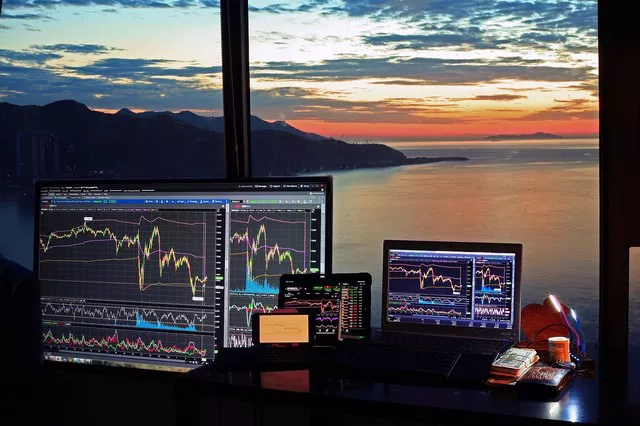Embarking on the journey of futures trading can be an exciting and rewarding endeavor, especially with platforms like Binance Futures providing access to a diverse range of cryptocurrency contracts. Making your first trade on Binance Futures involves a series of strategic steps, from creating an account to executing your initial trade. In this comprehensive guide, we will walk you through each crucial stage, highlighting key aspects to ensure a successful and informed initiation into the world of cryptocurrency futures trading.
Understanding Binance Futures and Creating an Account
Binance Futures is an extension of the popular cryptocurrency exchange, Binance, offering users the opportunity to trade cryptocurrency futures contracts. To begin your trading journey, the first step is to create an account on Binance if you haven’t already. Navigate to the Binance website and complete the registration process by providing the necessary information, including email verification and setting up a secure password. Once your account is successfully created, you can access the Binance Futures platform.
Navigating the Binance Futures Interface
Upon logging into your Binance account, locate the “Futures” tab on the top menu bar and click on it to access the Binance Futures trading interface. Familiarize yourself with the layout, which typically includes key sections such as the trading chart, order book, recent trades, and your trading account information. Binance offers a user-friendly interface, but taking the time to explore and understand the various components will enhance your overall trading experience.
Depositing Funds into Your Binance Futures Account
Before making your first trade, you need to deposit funds into your Binance Futures account. Click on the “Wallet” tab and select “Futures” to access your futures wallet. Here, you can deposit cryptocurrencies that will serve as your trading capital. Binance supports a variety of cryptocurrencies for deposits. Choose the one that aligns with your preferences and transfer it from your spot wallet to your futures wallet.
See Also: Why future and options exist?
Choosing the Right Trading Pair
Binance Futures offers a wide range of cryptocurrency trading pairs, allowing you to speculate on the price movements of various digital assets. Selecting the right trading pair is a crucial decision that depends on your trading strategy, preferences, and market analysis. Consider factors such as liquidity, volatility, and your familiarity with the chosen cryptocurrency pair. You can explore different pairs on the trading interface and analyze their historical price movements before making a decision.
Understanding Order Types and Setting Parameters
Before executing your first trade, it’s essential to understand the various order types available on Binance Futures. Common order types include market orders, limit orders, and stop orders. A market order is executed immediately at the current market price, while a limit order allows you to set a specific price at which you want your order to be filled. Stop orders are used to trigger a market order when a certain price level is reached. Set the parameters for your order, including the quantity and order type, based on your trading strategy.
Utilizing Leverage on Binance Futures
Binance Futures allows traders to use leverage, amplifying their exposure to the market. However, leverage also increases the risk associated with trading. Determine the appropriate level of leverage for your trade, keeping in mind that higher leverage can lead to both increased profits and losses. Binance Futures offers various leverage options, and you can select your preferred level when placing your order.
Risk Management and Setting Stop-Loss Orders
Effective risk management is a cornerstone of successful trading. Before making your first trade, establish clear risk management practices, including setting stop-loss orders. A stop-loss order automatically sells your position at a predetermined price to limit potential losses. Determine the appropriate stop-loss level based on your risk tolerance and the market conditions. This step is crucial to protect your trading capital and minimize potential downsides.
Reviewing and Confirming Your Order
Once you have chosen the trading pair, set your order parameters, and established risk management measures, review your order before confirming. Double-check the quantity, order type, leverage, and any other relevant details. Take a moment to verify that your order aligns with your trading strategy and goals. Once you are confident in your decision, click the “Buy” or “Sell” button to execute your first trade on Binance Futures.
Monitoring Your Open Positions
After executing your trade, it’s important to actively monitor your open positions. Binance Futures provides real-time updates on your active trades, including your profit and loss (P&L) and margin status. Utilize the trading interface to keep track of market movements, news, and any developments that may impact your positions. Regularly reassess your trades and consider adjusting your strategy if market conditions change.
Learning from Your Trading Experience
Your first trade on Binance Futures marks the beginning of your trading journey. Regardless of the outcome, take the opportunity to learn from the experience. Analyze the factors that influenced the market, review your decision-making process, and identify areas for improvement. Trading is an ongoing learning process, and each trade provides valuable insights that contribute to your growth as a trader.
Conclusion
Making your first trade on Binance Futures is a significant step towards actively participating in the dynamic world of cryptocurrency futures trading. By understanding the platform, depositing funds, choosing the right trading pair, employing risk management strategies, and actively monitoring your positions, you set the foundation for a successful trading experience. Continuously educate yourself, stay informed about market trends, and adapt your strategies to navigate the ever-evolving landscape of cryptocurrency futures trading on Binance.


